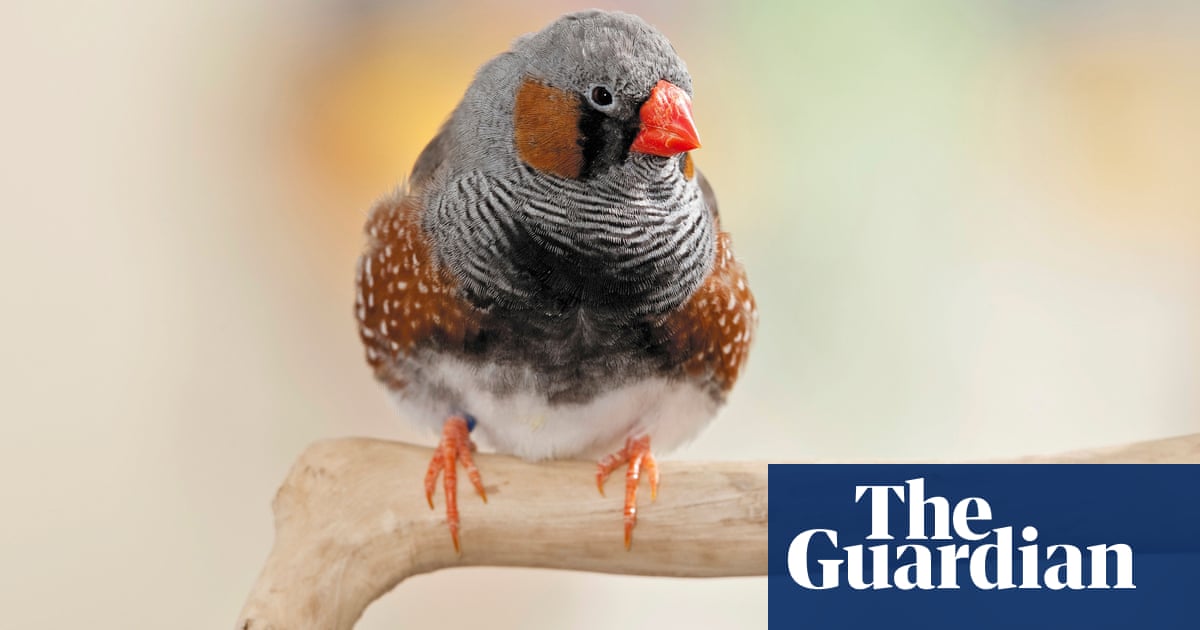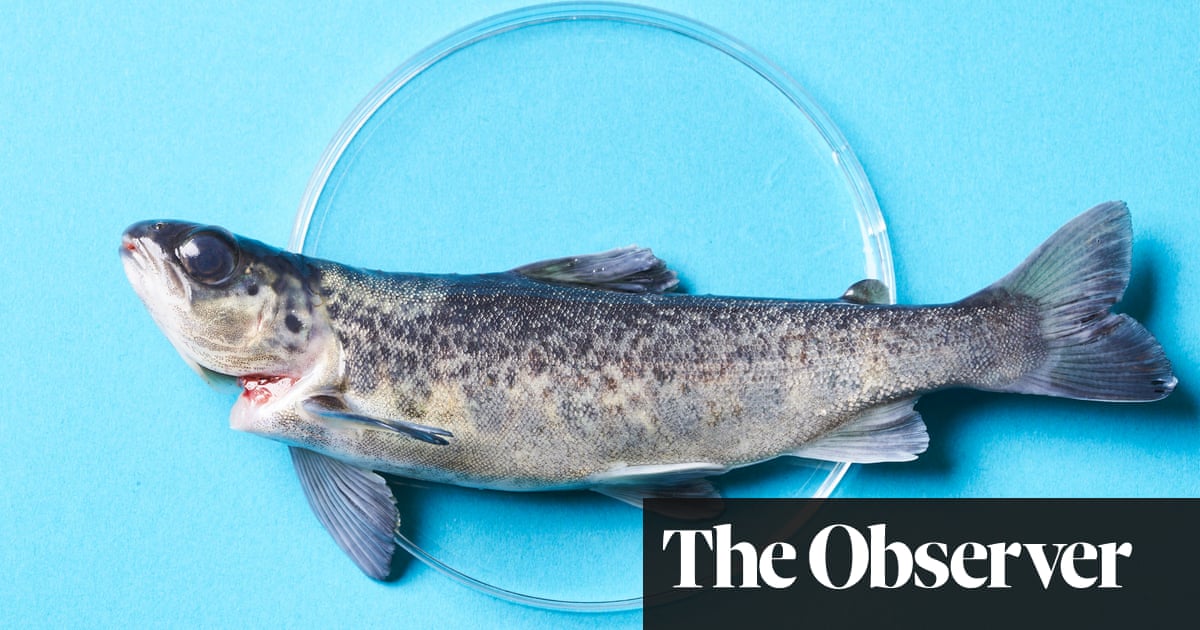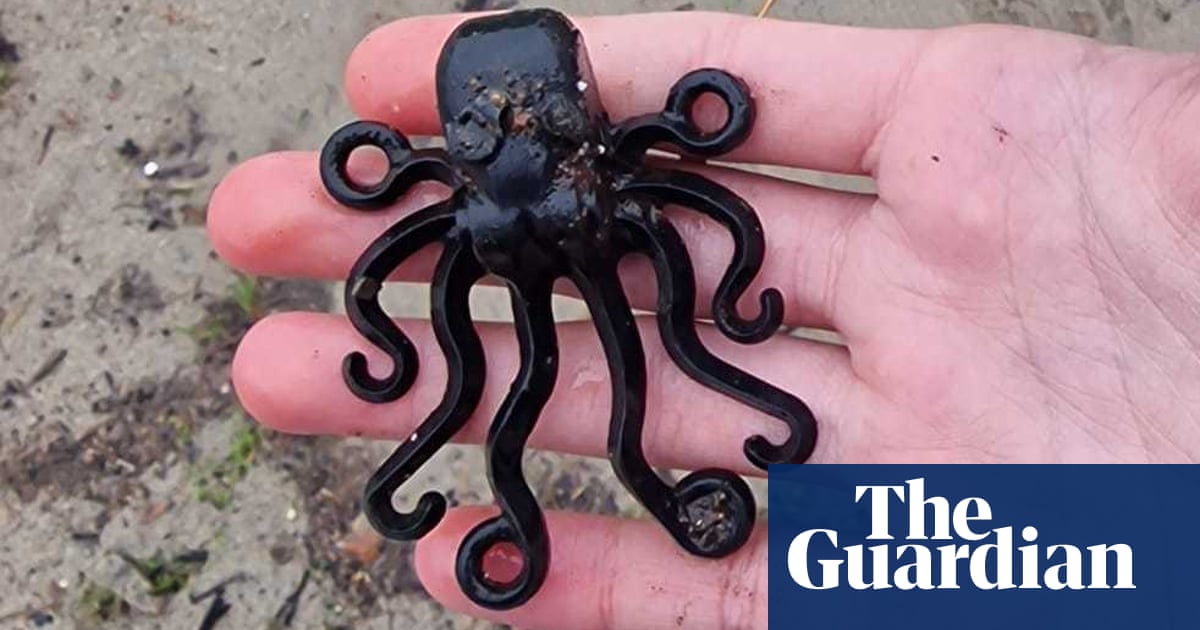Noise from traffic stunts growth of baby birds, study finds | Birds


Noise pollution from traffic stunts growth in baby birds, even while inside the egg, research has found.
Unhatched birds and hatchlings that are exposed to noise from city traffic experience long-term negative effects on their health, growth and reproduction, the study found.
“Sound has a much stronger and more direct impact on bird development than we knew before,” said Dr Mylene Mariette, a bird communication expert at Deakin University in Australia and a co-author of the study, published in the journal Science. “It would be wise to work more to reduce noise pollution.”
A growing body of research has suggested that noise pollution causes stress to birds and makes communication harder for them. But whether birds are already distressed at a young age because they are affected by noise, or by how noise disrupts their environment and parental care, was still unclear.
Mariette’s team routinely exposed zebra finch eggs for five days to either silence, soothing playbacks of zebra finch songs, or recordings of city traffic noises such as revving motors and cars driving past. They did the same with newborn chicks for about four hours a night for up to 13 nights, without exposing the birds’ parents to the sounds.
They noticed that the bird eggs were almost 20% less likely to hatch if exposed to traffic noise. The chicks that did hatch were more than 10% smaller and almost 15% lighter than the other hatchlings. When the team ran analyses on their red blood cells and their telomeres – a piece of DNA that shortens with stress and age – they were more eroded and shorter than their counterparts’.
The effects continued even after the chicks were no longer exposed to noise pollution, and carried over into their reproductive age four years later. The birds disturbed by noise during the early stages of their lives produced fewer than half as many offspring as their counterparts.
“We were expecting some effects, but we didn’t expect them to be so strong,” said Mariette, especially because the exposure to noise pollution was relatively mild and for only four hours a day. “It was really quite striking.”
“We generally assume, based on numerous studies, that very young birds, especially in the egg, have very poor or no sensitivity to sound,” said Robert Dooling, an animal hearing expert from the University of Maryland in the US, who was not involved in the study. But “this study raises the spectre of broad, negative, enduring effects of noise on development”.
Hans Slabbekoorn, a professor of acoustic ecology and behaviour at Leiden University in the Netherlands who was not involved in the study, said he was particularly surprised. When his team ran experiments exposing chicks and their parents to moderate noise pollution, they did not find any impact on the growth of the chicks.
Slabbekoorn speculated that changes in the behaviour of the parents – such as how they attended to their nests more – may have avoided or compensated for the negative effects of noise on the chicks.
after newsletter promotion
“I was indeed not expecting [such a] big impact necessarily,” Slabbekoorn said. It is the cumulative nature of these negative effects that may “in the end be most problematic”, he added. “Especially when noisy conditions are indeed frequent or continuous, as with birds living in noisy neighbourhoods, close to airports, or busy highways.”
His research has also found that birds at airports are exposed to such loud noise levels that they may be partially deaf.
More data is needed to pinpoint how many birds and which species these levels apply to, and it remains unclear whether it is the loudness, the pattern, the pitch, or other elements of traffic noise that disturb the young birds, or the mechanism behind the observed effects.
Source link




